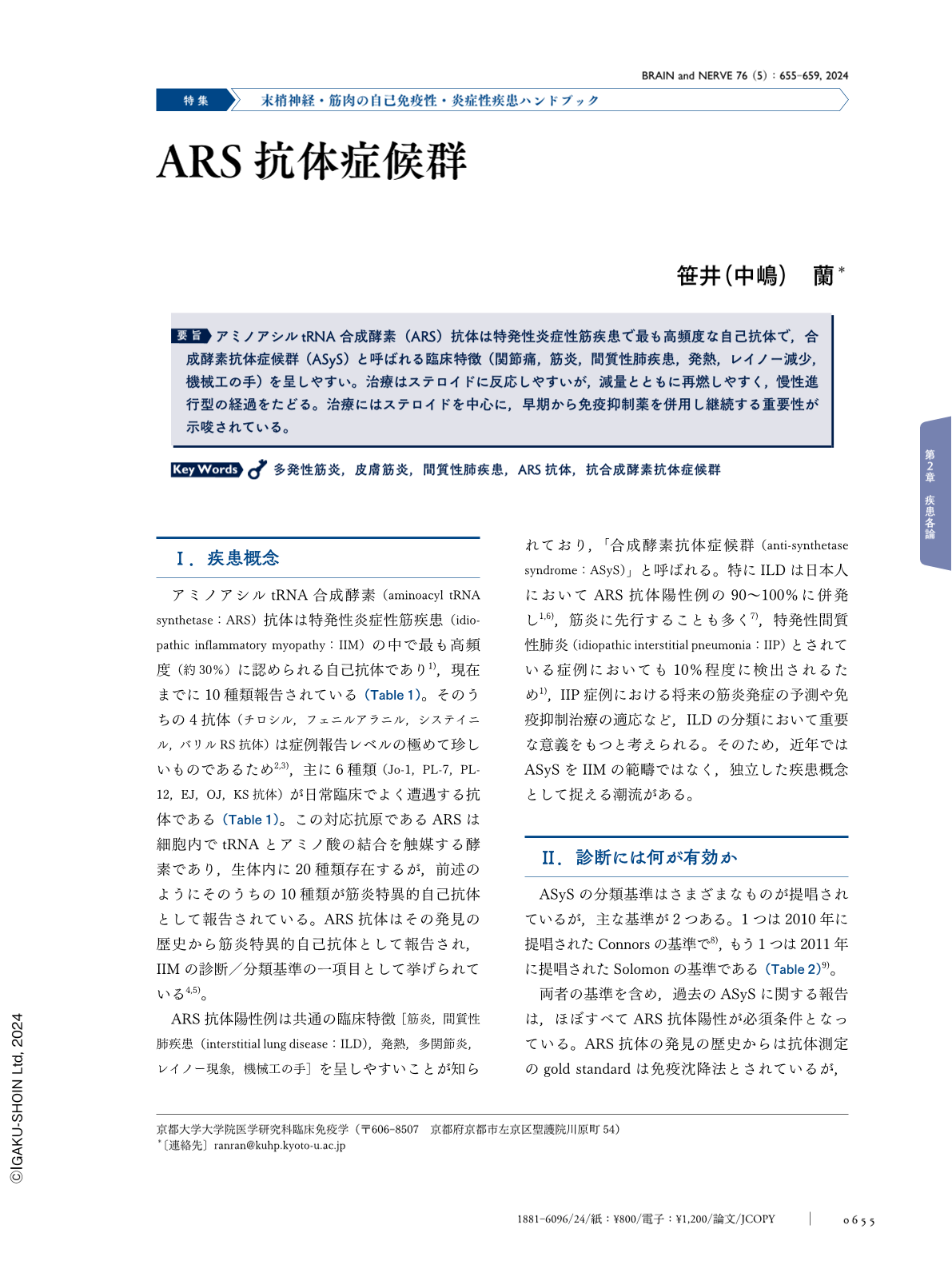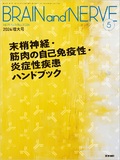Japanese
English
- 有料閲覧
- Abstract 文献概要
- 1ページ目 Look Inside
- 参考文献 Reference
アミノアシルtRNA合成酵素(ARS)抗体は特発性炎症性筋疾患で最も高頻度な自己抗体で,合成酵素抗体症候群(ASyS)と呼ばれる臨床特徴(関節痛,筋炎,間質性肺疾患,発熱,レイノー減少,機械工の手)を呈しやすい。治療はステロイドに反応しやすいが,減量とともに再燃しやすく,慢性進行型の経過をたどる。治療にはステロイドを中心に,早期から免疫抑制薬を併用し継続する重要性が示唆されている。
Abstract
Anti-aminoacyl tRNA synthetase (ARS) antibodies are the most frequent in idiopathic inflammatory myopathy, notably associated with anti-synthetase syndrome (ASyS), which is characterized by six clinical features: arthritis, myositis, interstitial lung disease (ILD), fever, Raynaud's phenomenon, and mechanical hands. Although patients with ASyS often respond well to initial glucocorticoid (GC) therapy, they tend to have a chronic, recurrent disease course. In anti-ARS-positive patients, the treatment goal involves suppressing disease recurrence and progression while achieving a minimal GC dose. In this regard, the administration and continuation of immunosuppressants, such as calcineurin inhibitors, have been suggested. B-cell depletion therapies are expected to be valuable in patients with refractory ASyS. Moreover, additional antifibrotic agents may be beneficial for patients with progressive fibrosing ILD.

Copyright © 2024, Igaku-Shoin Ltd. All rights reserved.


